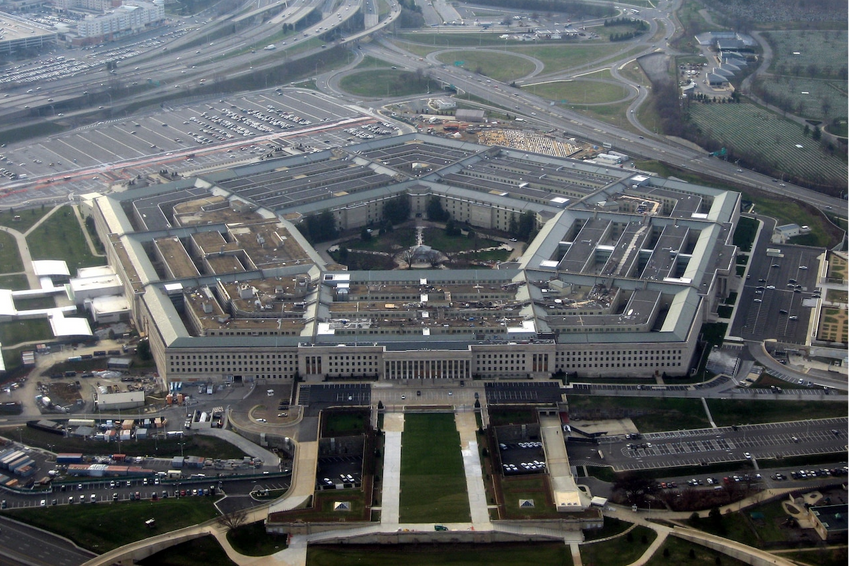By Veronica Jolley & Caspian Rizzo
The Biden Administration announced on Apr. 6 they were investigating a potential leak of highly classified U.S. Defense Department documents detailing information on the ongoing war in Ukraine on social media channels. The documents include timelines of the war and tell of the casualties suffered on both sides, the military vulnerabilities of each and, crucially, what their relative strengths are likely to be when Ukraine decides to launch its much-anticipated spring offensive. The Pentagon is investigating the leak, which first appeared on Discord, then Twitter and Telegram, a platform with more than half a billion users that is widely available in Russia. Jack Teixeira, a 21-year-old military cyber-specialist, is suspected of allegedly having leaked the top secret documents.
Teixeira is not the kind of leaker that the average American expects. The Massachusetts Air National Guardsman, who worked as a technology support officer, is no radical leftist journalist, coming out of a warzone with horror stories of American war crimes, troop movements and aggressive intelligence operations. Teixeira is a young man that spent his free time running “Thug Shaker Central,” a Discord server where a series of people from their late teens to early twenties talked about gun culture, online gaming and recent political events. For months, according to federal investigators, the 21-year-old transcribed and posted hundreds of sensitive documents in the small, invitation-only chatroom.
According to members of the server, one of these teenage friends accidentally broke containment, spreading the classified documents out of the friend group into the broader world. From there, things snowballed as more documents were shared and picked up by people outside of their little corner of the internet. Teixeira was arrested in connection to “unauthorized removal, retention and transmission of classified national defense information” Attorney General Merrick Garland wrote in a statement.
The classified documents, which have not been individually authenticated by U.S. officials, range from briefing slides mapping out Ukrainian military positions to assessments of international support for Ukraine and other sensitive topics, including under what circumstances Russian President Vladimir Putin might use nuclear weapons. The documents also appear to have been modified in certain parts from their original format, overstating American estimates of Ukrainian troop casualties and understating estimates of Russian troops killed. The Pentagon said it has “low confidence” in the figures, due to gaps in information, operational security and deliberate attempts, likely by both sides, to mislead. But the disclosures in the original documents, which appear as photographs of charts of anticipated weapons deliveries, troop and battalion strengths and other plans represent a significant breach of American intelligence in the effort to aid Ukraine.
There’s no clear answer on how many documents were leaked. The Associated Press claims to have viewed approximately 50 documents; some estimates put the total number in the hundreds. Many details of the story can’t be immediately verified, and U.S. officials acknowledge publicly that they’re still trying to find answers. While several sources have claimed that the leaked documents are fake or have been altered in some way, they all agree that there is a clear security risk, and have been unwilling to verify or disavow any individual piece of leaked information.
The leaks have highlighted how closely the U.S. monitors how its allies and friends interact with Russia and China. AP News has reported on U.S. intelligence picking up claims from Russian operatives that they were building a closer relationship with the United Arab Emirates, the oil-rich Middle Eastern nation that hosts important American military installations. The UAE denies the allegations, calling them “categorically false.”
The documents also describe U.S. attempts to persuade international allies to support Ukraine, including South Korea and Israel. While Ukraine had previously reached out and tried to ask for Israel’s Iron Dome—one of the most powerful anti-rocket systems in the world—Israel has rebuffed it. Moscow is involved in aiding Israeli operations crushing militants in Syria, and there are strong ties between many of Putin’s personal backers and the Israeli state.
Meanwhile, South Korea has adopted a policy against selling weapons internationally, especially as it shores up its reserves in the face of what it perceives to be increasing aggression from its neighbor to the north. It was reported by The Washington Post that Egypt’s president ordered subordinates to secretly prepare to ship up to 40,000 rockets to Russia as it wages war in Ukraine. A spokesman for the Egyptian foreign ministry said that Egypt was maintaining “noninvolvement in this crisis and committing to maintain equal distance with both sides.”
The Pentagon has begun an internal review to assess the leak’s impact on national security, CIA Director William Burns said at a Rice University lecture. The review is reportedly being led by Deputy Undersecretary of Defense for Intelligence and Security Milancy D. Harris. The investigative team includes representatives from the offices of legislative affairs, public affairs, policy, legal counsel and the joint staff. The Pentagon is also quickly taking steps to reduce the number of people who have access to briefings, a defense official told AP News. Pentagon officials are also closely monitoring where the leaked slides are “being posted and amplified,” Assistant to the Secretary of Defense for Public Affairs Chris Meagher said.
Separately, the Justice Department has opened a criminal investigation into how the slides were obtained and leaked. “It’s something that the U.S. government takes extremely seriously,” Burns stated. “The Pentagon and the Department of Justice have launched a quite intense investigation to get to the bottom of this.”
Meanwhile, many officials doubt the severity of the actual contents of the leaks themselves. The true concern is whether or not these countries will repair the vulnerabilities and weaknesses in their own military and political intelligentsia to prevent the U.S. from spying again.

